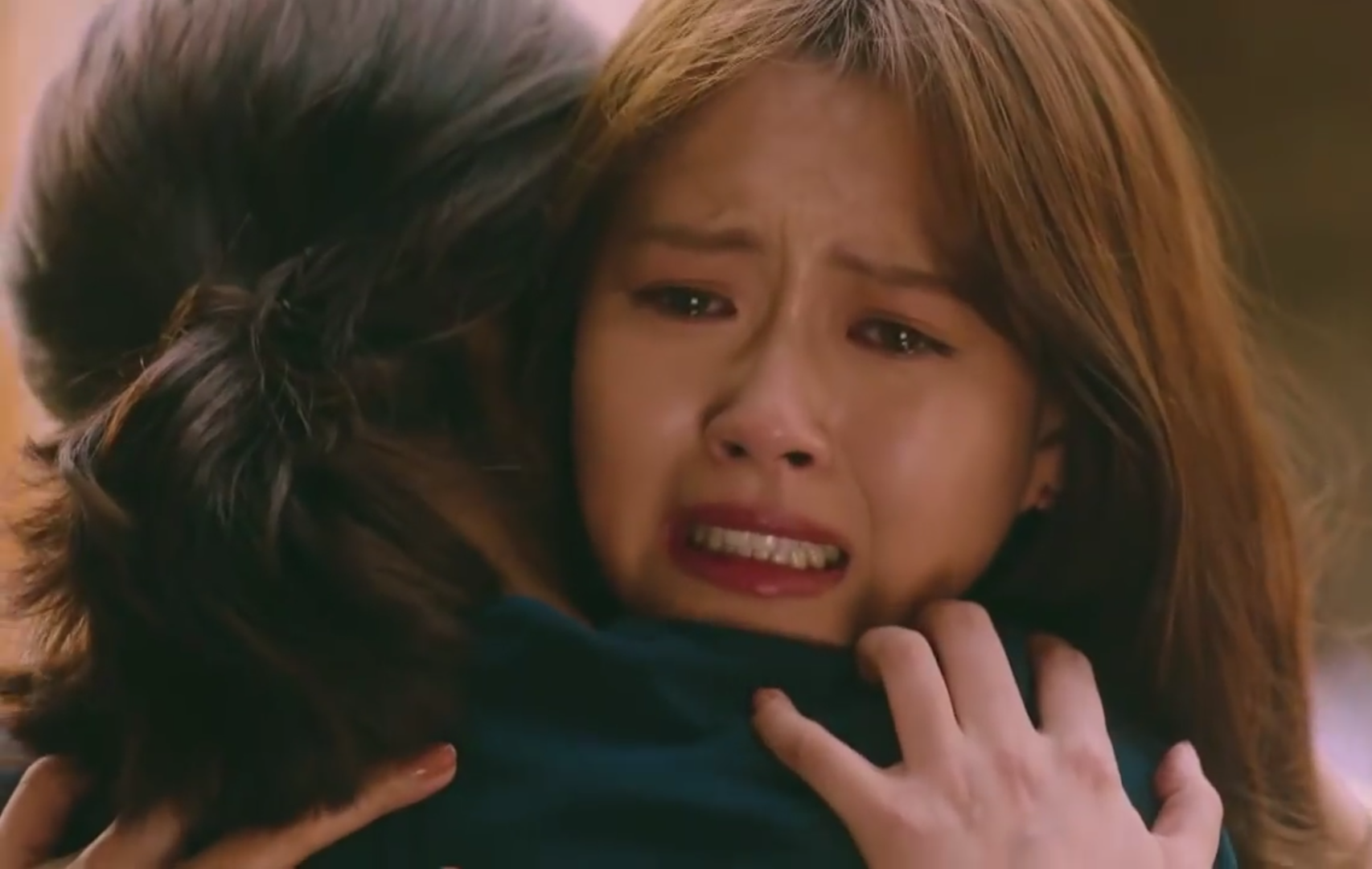 Miss Hammurabi won my applause for being a drama that is unabashedly upfront about its challenges against societal norms. From gender discrimination in the workplace, to criticising South Korea’s (at times) mindless emphasis on hierarchy, while situating itself in the setting of Seoul’s Central District Court, the series is an intellectual whirlwind of social criticism.
Miss Hammurabi won my applause for being a drama that is unabashedly upfront about its challenges against societal norms. From gender discrimination in the workplace, to criticising South Korea’s (at times) mindless emphasis on hierarchy, while situating itself in the setting of Seoul’s Central District Court, the series is an intellectual whirlwind of social criticism.
As the drama barrels forward, the increasing complexity of cases being dealt to Civil Case Department 44, headed by Han Se-sang (Sung Dong-il), makes it harder for his younger associate judges to remain steadfast in their beliefs. Im Ba-reun (Kim Myung-soo/Infinite’s L) and Park Cha Oh-reum (Go Ara) experience first-hand the inflexibility of the court. They pit heads with the other older presiding judges, and even having Se-sang and the other associate judges on their side, it remains a tough battle against a long-established hierarchical system.
The first few episodes of the drama’s second half ends on a relatively happy note, with Jung Bo-wang (Ryu Deok-hwan) getting together with Lee Do-yeon (Lee Elijah). Putting a closure to yet another side story, what remains is the bubbling love triangle between Ba-reun, Oh-reum, and Min Yong-joon (Lee Tae-sung). Yong-joon enters the picture as Oh-reum’s childhood friend, always attentive to her tastes, and a complete opposite to Ba-ruen. Head of NJ Group, he has the wealth of a king, whereas Ba-reun struggles to support his family.
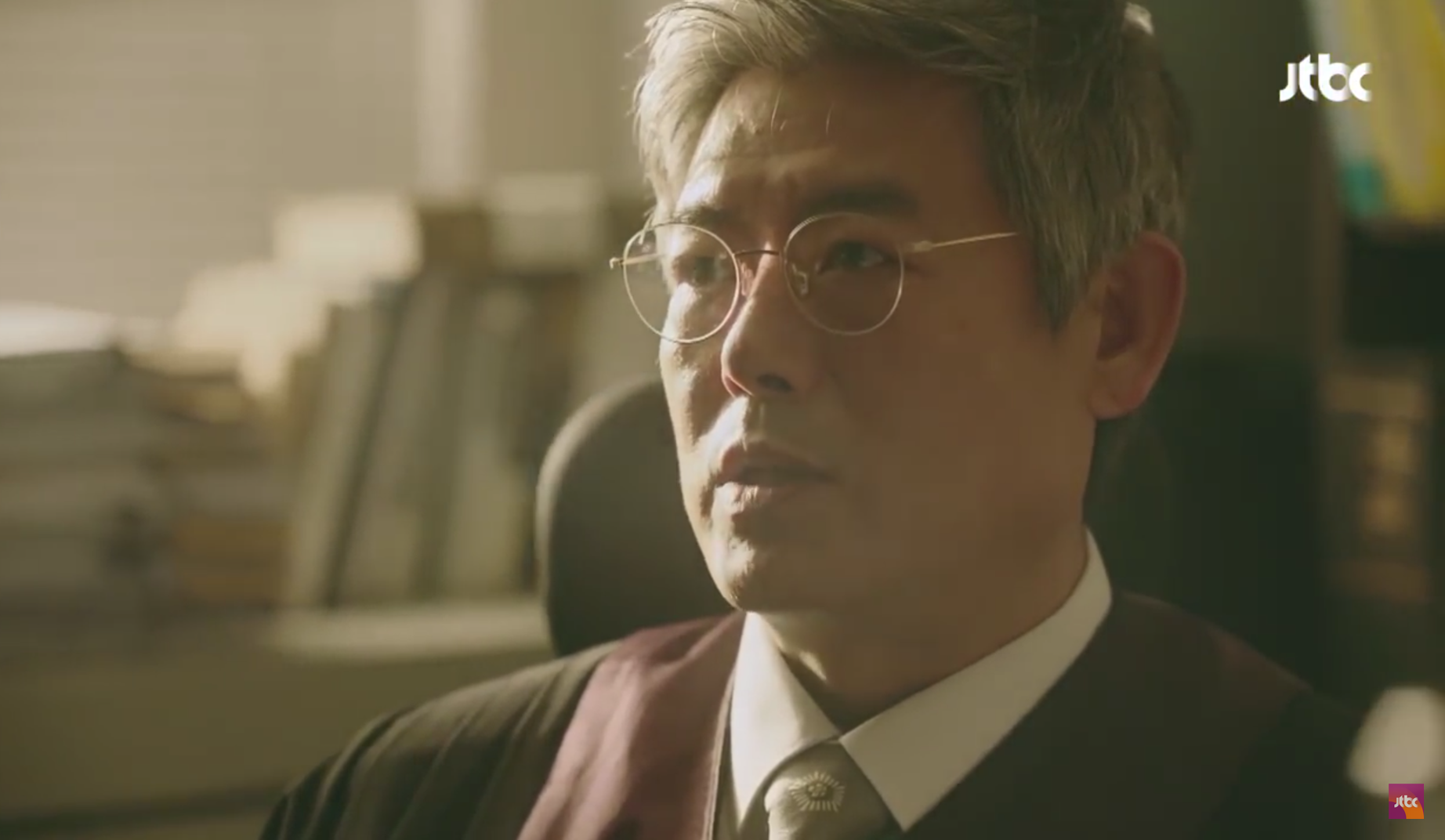 Yet, the drama chooses to take a different path in its development. Rather than making the remaining episodes a competition for Oh-reum’s affections, the drama proceeds with the romance on the side-lines—it progresses, but only to complement the primary focus on the law.
Yet, the drama chooses to take a different path in its development. Rather than making the remaining episodes a competition for Oh-reum’s affections, the drama proceeds with the romance on the side-lines—it progresses, but only to complement the primary focus on the law.
In a moment of flurry during a meeting, Se-sang suggests dividing work between departments, resulting in his own department having to deal with criminal cases. Oh-reum’s reputation and scandalous image portrayed by the media places her in a difficult position. With potentially sensational cases rolling into the civil court, things are only going to get tougher on the entire department.
The show’s climax kicks off when our beloved judges have to deal with a case of quasi-rape concerning a prominent professor who has allegedly violated one of his female graduate students. The situation gets more complicated when the professor in question is revealed to be Yong-joon’s brother-in-law. Yong-joon approaches Oh-reum, pleading for his brother-in-law’s innocence—but by now, we all know that is a big no-no. Oh-reum is angered by such a request from Yong-joon. She closes their conversation swiftly, and that’s that.
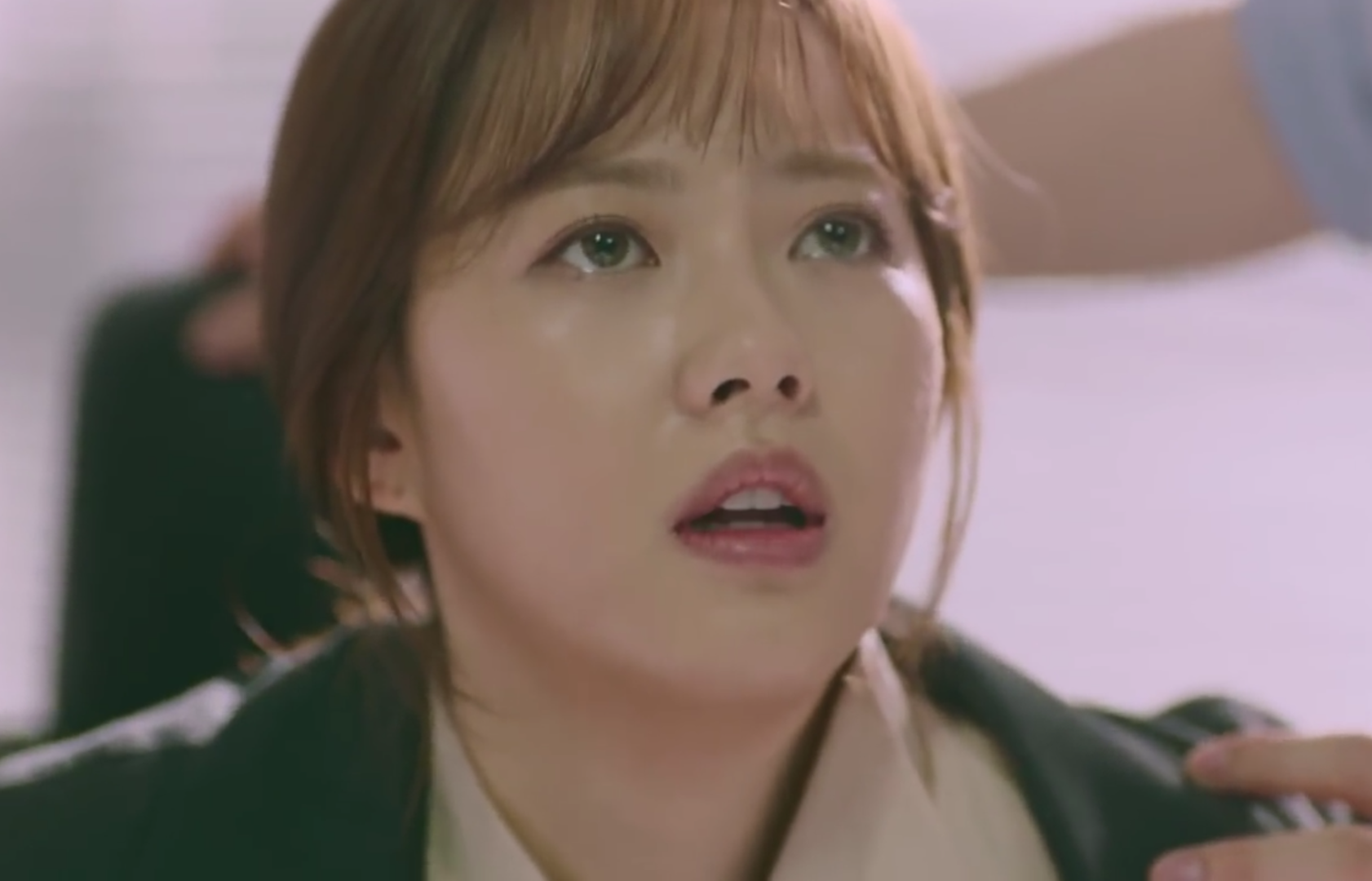 The drama does not make things easy for its protagonists. From the professor’s attempted suicide to the victim declaring her claims of being raped to be a lie, Oh-reum’s furious defense of the victim shatters to pieces. The media takes shots at her, putting her down as aggressive in pushing for her supposedly feminist views and blackening her public image at a single go.
The drama does not make things easy for its protagonists. From the professor’s attempted suicide to the victim declaring her claims of being raped to be a lie, Oh-reum’s furious defense of the victim shatters to pieces. The media takes shots at her, putting her down as aggressive in pushing for her supposedly feminist views and blackening her public image at a single go.
Of course, this issue isn’t as simple as it seems. Ba-reun suspects foul play and confronts Yong-joon about it, requesting for him not to harm Oh-reum. In their confrontation, Yong-joon’s ruthlessness is finally revealed to the audience. No longer the caring oppa to Oh-reum, he asks for Ba-reun to drop to his knees and beg, even for him to leave his job.
The complete turn from the knight in shining armour to devil is upsetting, but not entirely startling. After all, Oh-reum had been constantly disappointed at Yong-joon’s selfishness and inability to step out of his position of privilege. Ba-reun appears to give in, almost dropping to his knees, but makes the strong declaration that he will make Yong-joon kneel before the law instead. In a simple sentence, Ba-reun roots himself as more than just a foolish lover willing to give up his whole world just for a girl. Despite all the changes that Oh-reum has brought by entering his life, the drama preserves his personality as a level-headed counterpart to Oh-reum.
The stunning developments, even for its side characters, towards the drama ends creates even more depth for a show that already packs a punch. This case even gives some space for the other presiding judges to redeem themselves. In a conversation with the Chief Presiding Judge (Ahn Nae-sang), ambitious and cold-hearted Bae Gong-dae (Lee Won-jong) expresses displeasure at having to watch Oh-reum being ripped to shreds. No matter how problematic she might be, he agrees that she is still part of an organisation he considers family.
Sadly, this case is only the prelude to a greater hurdle. As one problematic case closes, the civil court is assigned a case concerning a feeble wife’s murder of her abusive husband. Angry upon hearing that his wife might be having an affair, the drunk husband had beat up his wife. In the moment of conflict, she stabbed him with a pair of scissors. The wife’s claim of self-defense creates an unneeded buzz, with media attention already critical of Oh-reum being one of the judges handling the case.
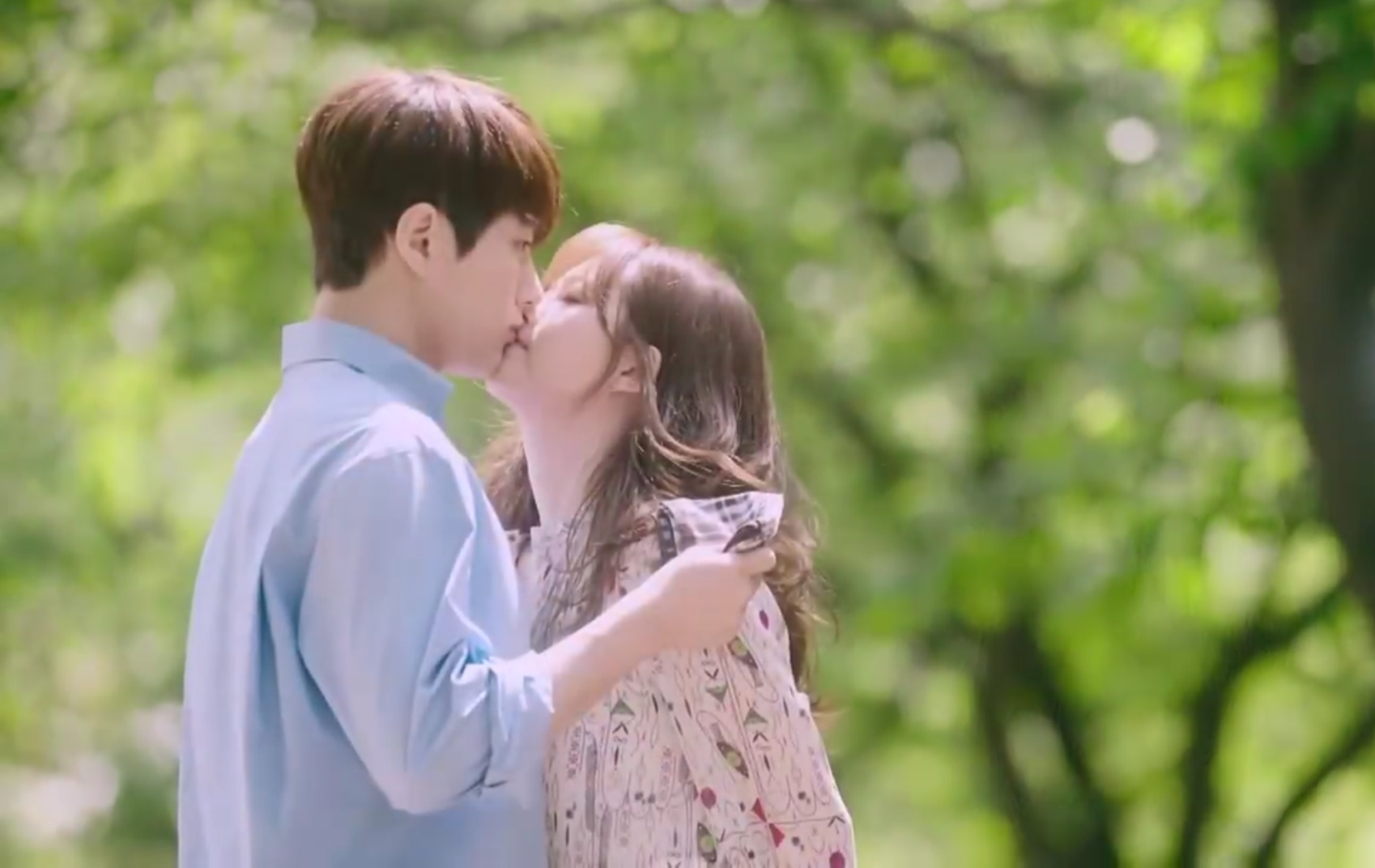 Oh-reum loses her fervour, and it is understandable why she decides to submit a resignation letter. However, it is in her moment of utter despair that the drama’s romance unfolds. Ba-reun tells Oh-reum that he will resign with her, and takes her on an “Im Ba-reun tour” around the neighbourhood near their high school. As they put their feelings out in the open, we get the satisfaction of watching a cute date unfold.
Oh-reum loses her fervour, and it is understandable why she decides to submit a resignation letter. However, it is in her moment of utter despair that the drama’s romance unfolds. Ba-reun tells Oh-reum that he will resign with her, and takes her on an “Im Ba-reun tour” around the neighbourhood near their high school. As they put their feelings out in the open, we get the satisfaction of watching a cute date unfold.
Rather than making the plot revolve around a love story, the slow development of their relationship, by jumping through hoops together, learning from each other, and finally realising how they depend on each other, makes for a comfortable watch. It is not a fantasy of workplace romance, but a realistic depiction of human relationships that grow only over time.
The tour ends in a joyous gathering between colleagues and family, with Oh-reum’s mother finally acknowledging her, but the happiness is short-lived. The final episode is a tsunami of tension, though I am thankful the drama didn’t spiral from into some lovey-dovey blackhole just because of Ba-reun and Oh-reum are finally together. The focus returns to graver matters of the courtroom.
With gossip and trouble snowballing, Judge Sung Gong-choong (Cha Soon-bae) had swooped in and called for disciplinary action to be taken against Oh-reum. As mentioned in my previous review, Judge Sung has been bearing a deep-seated grudge against Oh-reum for petitioning against him for his poor treatment of his associate judges, in particular, Hong Eun-ji (Cha Soo-yeon). Though news of Eun-ji’s miscarriage due to overworking has since been hushed up, the supposedly passing storm seems to have returned with a fury.
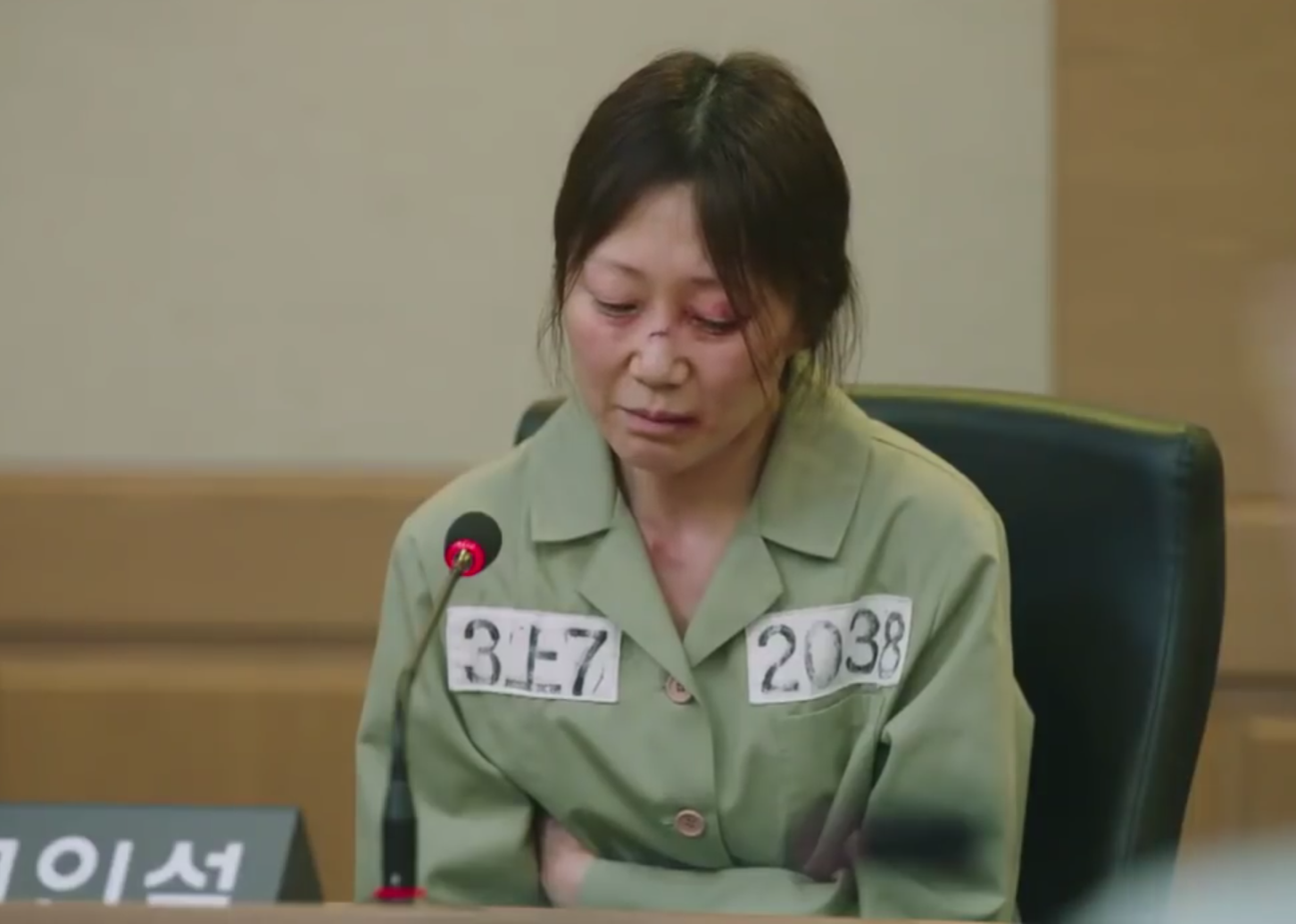 Oh-reum enters the trial of the wife accused of murder with the possibility of it being her last case. The journalists buzzing and seated in the courtroom aren’t encouraging signs either. Furthermore, the trial is overseen by a randomly selected jury, consisting of citizens who will pass a verdict for the judges’ reference. The defendant lawyer is timid in front of the disapproving crowd, whereas the prosecutor seems adamant on pinning the wife as a murderer. The questioning of the witness, the landlady to the married couple’s building, gets increasingly intense with Oh-reum’s persistent questioning. The show’s insistence on revealing the truth shines in these moments of bubbling tension.
Oh-reum enters the trial of the wife accused of murder with the possibility of it being her last case. The journalists buzzing and seated in the courtroom aren’t encouraging signs either. Furthermore, the trial is overseen by a randomly selected jury, consisting of citizens who will pass a verdict for the judges’ reference. The defendant lawyer is timid in front of the disapproving crowd, whereas the prosecutor seems adamant on pinning the wife as a murderer. The questioning of the witness, the landlady to the married couple’s building, gets increasingly intense with Oh-reum’s persistent questioning. The show’s insistence on revealing the truth shines in these moments of bubbling tension.
Oh-reum’s sharp questioning begins to win over the approval of the crowd as she exposes the brutal abuse the wife suffered in the moments leading up to the murder. Much to the prosecutor’s dissatisfaction, he accuses her of stepping out of the line as a judge. This eventually leads to the witness’s own outburst, claiming that the pivotal questions posed by Oh-reum had not previously been asked to her. Without having to speak further, it is clear Oh-reum’s line of questioning remains far more astute towards revealing the truth of the matter while helping others understand the situation from the wife’s perspective.
The drama has tried its best to teach small lessons after each trial. Throughout its 16 episodes, we’ve learnt the importance of listening to all sides of a story, to always be kind to those in a weaker position in society, to stand up against injustices, and so much more. The crux of this final case is for the young judges to learn how to place their faith in the people, embodied by the randomly selected jury.
The jury’s opinion, if differed from in the judges’ final verdict, tends to lead to public disapproval—unwanted for them with Oh-reum already in the spotlight. Ba-reun’s initial uncertainty regarding the jury’s verdict, based on his unpleasant encounter with one of the jury members, is easily concluded when the verdict turns out to be unanimous in deciding the abused wife to be not guilty.
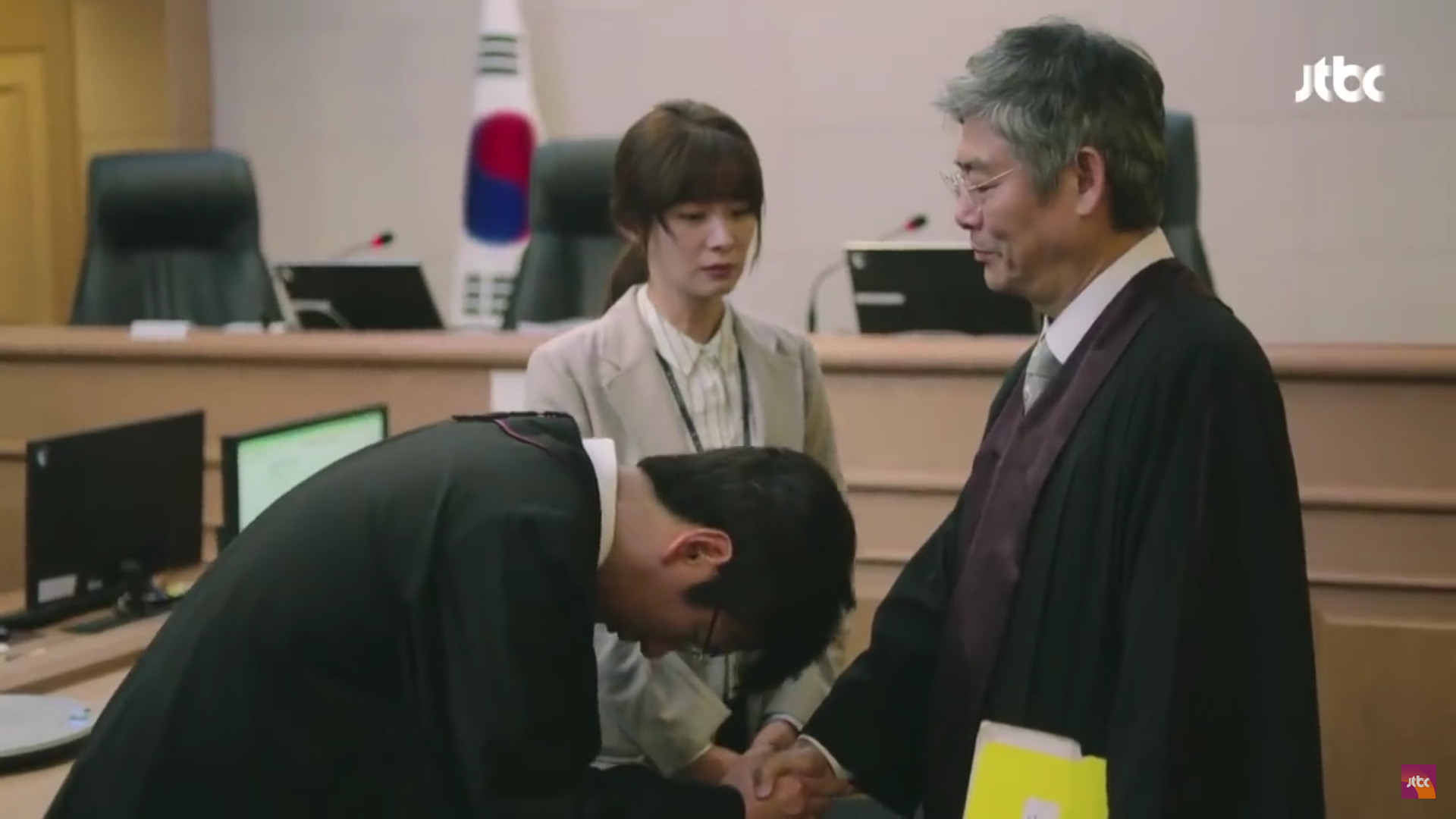
The trial’s quick conclusion is only a part of what will be an easily attained happy ending. Between the court trial and receiving the decision from the jury, Se-sang had revealed his resignation to his associate judges. It is a river of tears from everyone in the department, and the court trial closes with his dignified farewell.
The fuss about Oh-reum having to face disciplinary action is swiftly resolved when Eun-ji decides to post on the organisation’s forum regarding her miscarriage and the various abuses she faced working under Sung Gong-choong. This sparks a frenzy of responses, all directed against Judge Sung (which I find much too similar to the #metoo movement in South Korea). All the talk of having someone take the fall for blackening the reputation of the district court comes to a close as the Chief Presiding Judge announces his withdrawal of the request to take disciplinary action against Oh-reum. In place of it, he files for disciplinary action to be taken against Judge Sung.
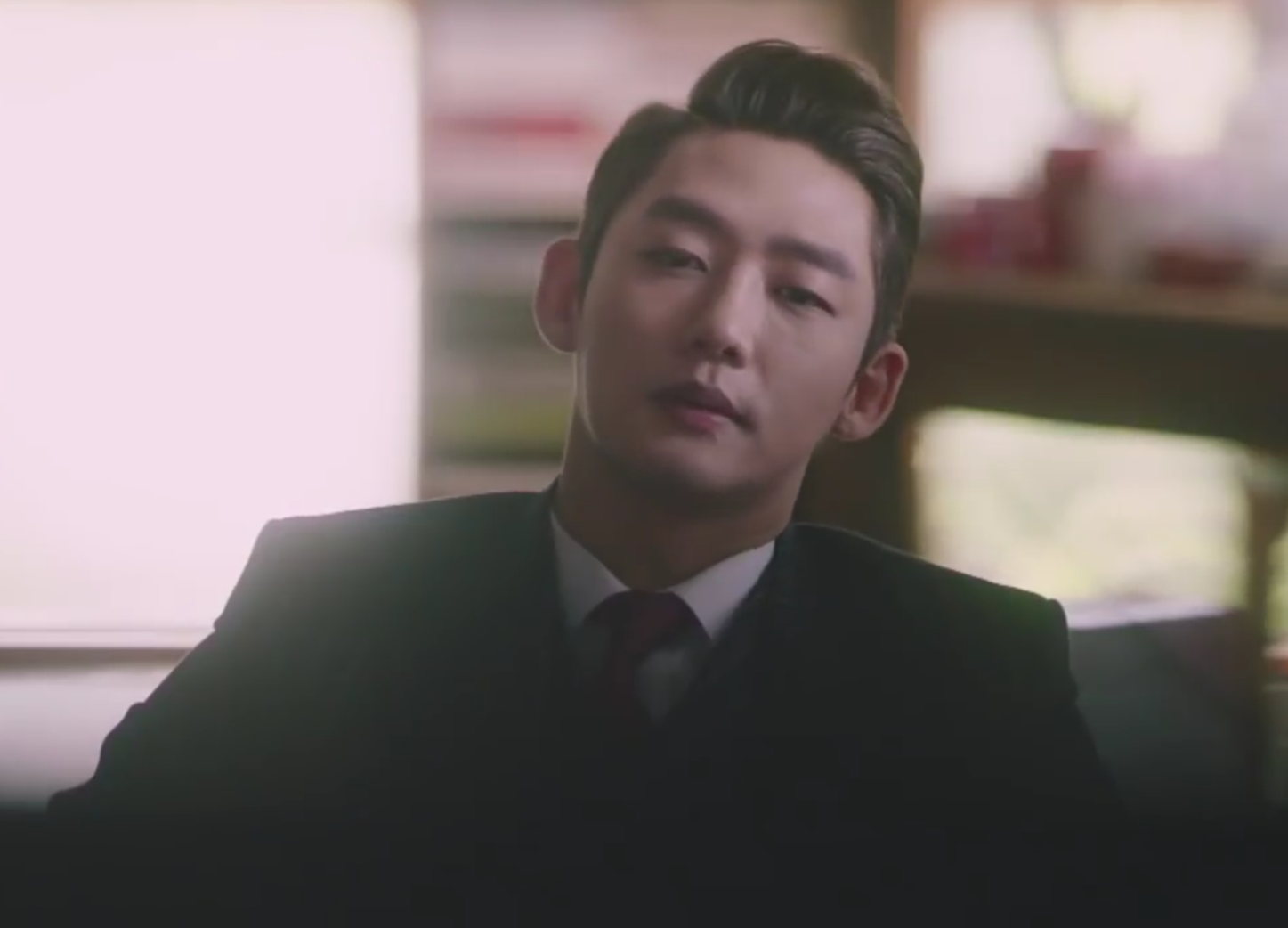 Beyond the Seoul District Court, Yong-joon is exposed for offering benefits to the supposed victim who had claimed to be raped by her professor. During a public event hosted by NJ Group, a reporter that Oh-reum had formerly overseen in a court case exposes Yong-joon for his deeds. The media snaps up the opportunity to kick up a scandal and Yong-joon is publicly shamed.
Beyond the Seoul District Court, Yong-joon is exposed for offering benefits to the supposed victim who had claimed to be raped by her professor. During a public event hosted by NJ Group, a reporter that Oh-reum had formerly overseen in a court case exposes Yong-joon for his deeds. The media snaps up the opportunity to kick up a scandal and Yong-joon is publicly shamed.
The problem with having such an intense episode close with a swift happy ending is the lack of satisfaction it delivers to its viewers. The petition that Bo-wang and Ba-reun so fervently rallied for to clear Oh-reum’s name is quickly resolved without ever having come to fruition. The spotlight on Han Se-sang’s public punching of Judge Sung in the cafeteria and his rebuttal against the Chief Presiding Judge, as well as Bo-wang’s defiance against his own presiding judge by claiming his resistance to be his moment of glory, become empty moments of supposedly passionate demonstration.
It is obvious that the only one who can effectively make any change remains to be the Chief Presiding Judge—the sole figure of authority in the system. Interestingly, such an ending leaves one to question whether any change was even made, though, at the same time, it reveals the ability for small actions of resistance to cause ripples of influence in an age-old system of values and attitudes. Perhaps this is the true beauty of the drama—its lack of answers, but immense ability for thought-provoking statements.
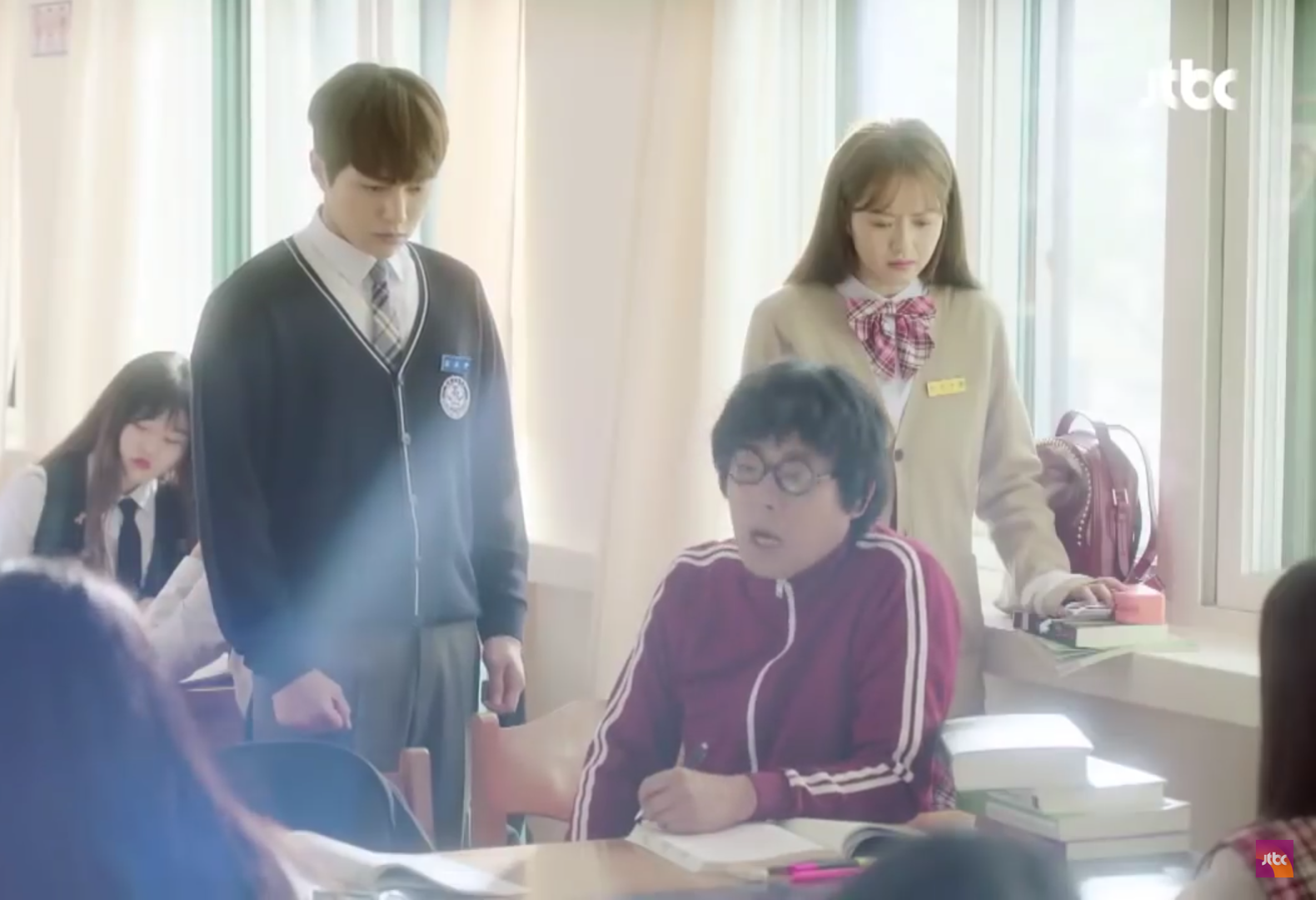
The drama ends with a small tidbit flashback scene of all its prominent characters (Im Ba-reun, Park Cha Oh-reum, Jung Bo-wang, Lee Do-yeon, Han Se-sang) back in their high school library. They encounter each other as the to-be civil department judges argue over seats, while Do-yeon and Bo-wang have a brief exchange. Maybe it was fate after all, and the drama makes sure to preserve its moments of humour.
Despite the hasty ending, the series leaves off on a striking note. Han Se-sang’s resignation might have come as a simple way to close off all things, but his final conversation with the Chief Presiding Judge delivers a thoughtful message. He tells the Chief Presiding Judge that they are people of the past, and they should let the laws of nature sweep the past away to make room for the future. The future, the drama has made clear, belongs to their younger associate judges who fight each battle with unyielding passion.
Determined to change the system, Oh-reum, Ba-reun, Bo-wang, and the many others they rallied in support of their causes are the ones who can pave the way for a better legal system. It has been a long journey of breaking down perceptions, as well as learning how to be respectful and understanding. Throughout the show, characters have told Oh-reum that she has the potential to change people. As viewers, we are not spared from being influenced by her sense of justice. The drama, through its charming range of characters, has achieved a level of depth balanced with elements of entertainment, making for an overall stunning masterpiece that urges its viewers to reassess society and their own perspectives.
(YouTube. Images via JTBC)


